Boris Johnson v Jeremy Hunt: a week in the Tory leadership contest
- Published
Two men - Boris Johnson and Jeremy Hunt - are competing to take over from Theresa May as the next leader of the Conservative Party and the UK's next prime minister. They've been out and about trying to win the votes of party members who will decide on the winner. With less than three weeks to go until the result, what's been happening over the past seven days of campaigning?
Event of the week
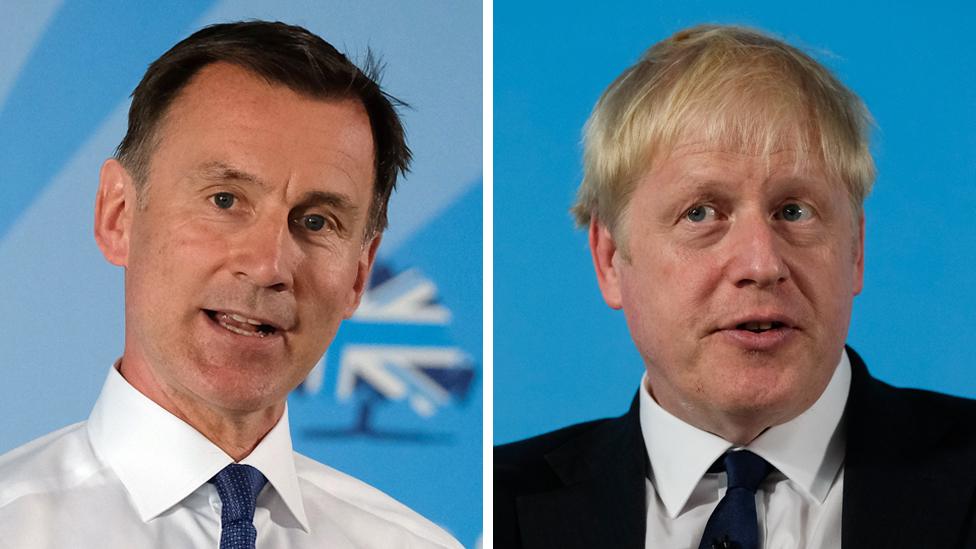
Over the course of a week, the candidates clocked up hundreds of miles to address party members at six hustings from Exeter to Carlisle.
On Tuesday, the would-be leaders spoke to party members in Belfast who were keen to grill them on their plans for the Irish border.
There are only about 500 members of the Conservative Party in Northern Ireland, but they have a disproportionate significance when it comes to Brexit.
That's because after Brexit, the 310-mile border between Northern Ireland and the Republic of Ireland will become the only land border between the UK and the European Union.
To try to put a fiendishly complicated issue in the simplest terms possible...
EU rules say there must be checks at its borders with non-EU countries.
But, with the shadow of decades of violent conflict around the Irish border at the forefront of their minds, all sides agree that no visible border can be reinstated.
Conservative MPs have repeatedly rejected the Irish backstop - the insurance policy which would keep the UK aligned to the EU's rules and halt the need for a border if no other solution is found.
The BBC's political editor Laura Kuenssberg says both candidates have been taking what could be described as a "cross-your-fingers" approach to this puzzle.
Mr Hunt told party members in Belfast the backstop would have to "change or it has to go", if he becomes prime minister.
Mr Johnson said he would solve the border issue, "where it belongs", ie after the UK has left the EU when the two negotiate a future trade deal.
Making good on either of those promises will be a challenge.
The EU has said it is not willing to agree a deal without a backstop and so far, there has been no sign it will agree to a time limit - the main change hoped for by many Tory MPs.
Read more:

Spat of the week
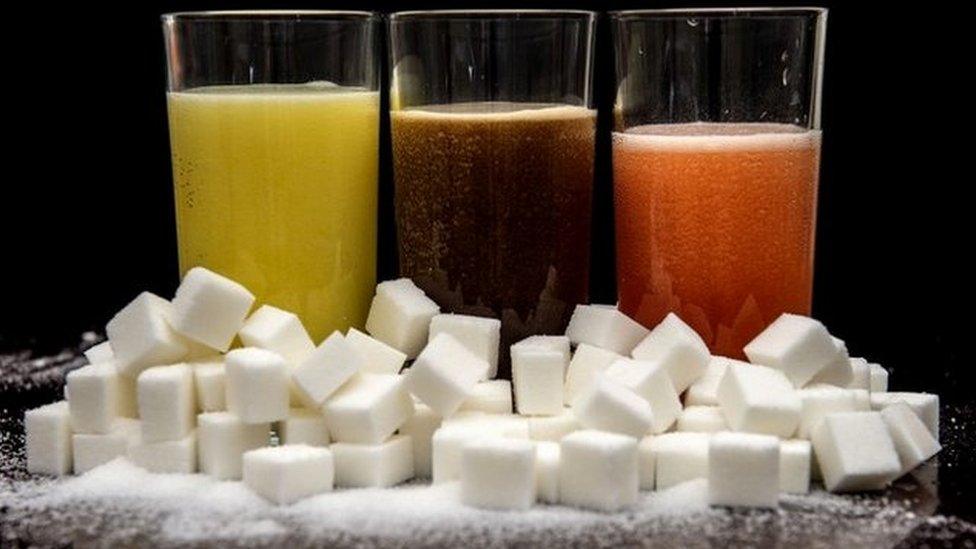
On Wednesday, Boris Johnson moved away from Brexit to more domestic concerns.
Newspaper headlines called them "sin taxes" and suggested Boris Johnson wanted to get rid of them. It was quickly assumed that this included taxes on cigarettes and alcohol, but in reality it seemed Mr Johnson was mostly talking about taxes on sugary food and drinks.
A levy on certain sugary drinks is already in force and ministers have been working away at extending this to milkshakes.
Mr Johnson said he would suspend the progress of any further taxes until the evidence had been looked at again because he claims such taxes target the less well-off.
But Jeremy Hunt - who used to be health secretary - described his plans as "confused".
The sugar tax on certain drinks has proved successful insofar as it has driven many manufacturers to change their recipes. The government claims 45,000,000kg of sugar has been taken out.
Those that haven't reduced their products' sugar content, like Coca-Cola, are paying more tax which is being funnelled into school sport and breakfast clubs.
Read more:

Stat of the week

A sum of £26bn - that's the pot of money the candidates have said they'll use to fund their plans to shake up the tax system, at the cost of at least £10bn.
The government sets itself rules for how much it can borrow and it currently has £26bn of "fiscal headroom" before it hits that ceiling - more money to play with than originally expected.
This extra money has been set aside by the chancellor for no-deal Brexit planning.
Both candidates say they will use this money in part to fund tax cuts instead.
Mr Johnson said he would raise the threshold for the higher rate of income tax to £80,000 at a cost of about £10bn.
The independent think tank, the Institute for Fiscal Studies (IFS) says the move would affect less than a tenth of the population, with well-off pensioners standing to benefit the most.
Ever keen to stress his entrepreneurial background, Mr Hunt focused his tax promises on businesses. He pledged to lower the rates companies have to pay on their profits, taking about £14bn off their bills, which would then have to be made up somewhere else.
Cutting corporation tax can sometimes lead to more tax take in the long run though.
The £26bn can only be spent once so it can't fund pledges to increase spending or cut taxes each year.
The pair have also made several announcements about increasing spending on public services.
In total, the IFS says Mr Hunt's tax and spending plans would cost between £37-£65bn including extra money for fishing, farming and defence.
A similar calculation isn't available for Mr Johnson but he's promised to give the public sector a pay rise, hire 20,000 extra police officers and increase funding for schools.
On Monday, Chancellor Phillip Hammond warned the candidates to "be honest" as the policies "greatly exceed" the money available to them.
Read more: Do Tory leadership tax plans add up?

Picture of the week
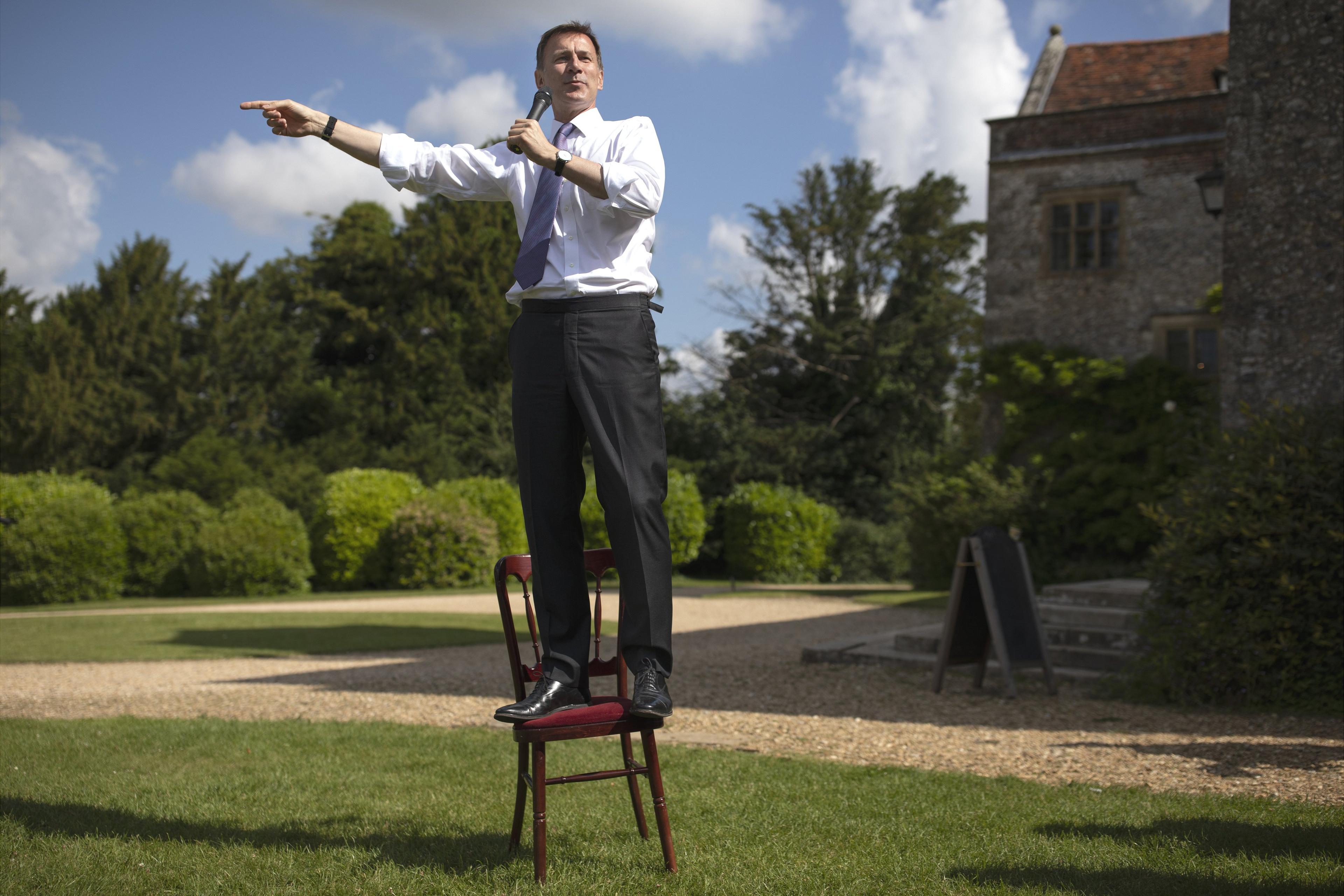
Jeremy Hunt visited Chawton House, in Hampshire, which once belonged to Jane Austen's brother, to address Conservative members.
Leading a country means grappling with risk and Mr Hunt showed himself willing to engage with this as he took up a slightly precarious perch on a chair to answer questions.
Meanwhile, Mr Johnson spent time at the Thames Valley Police training centre and tried his hand with a battering ram.
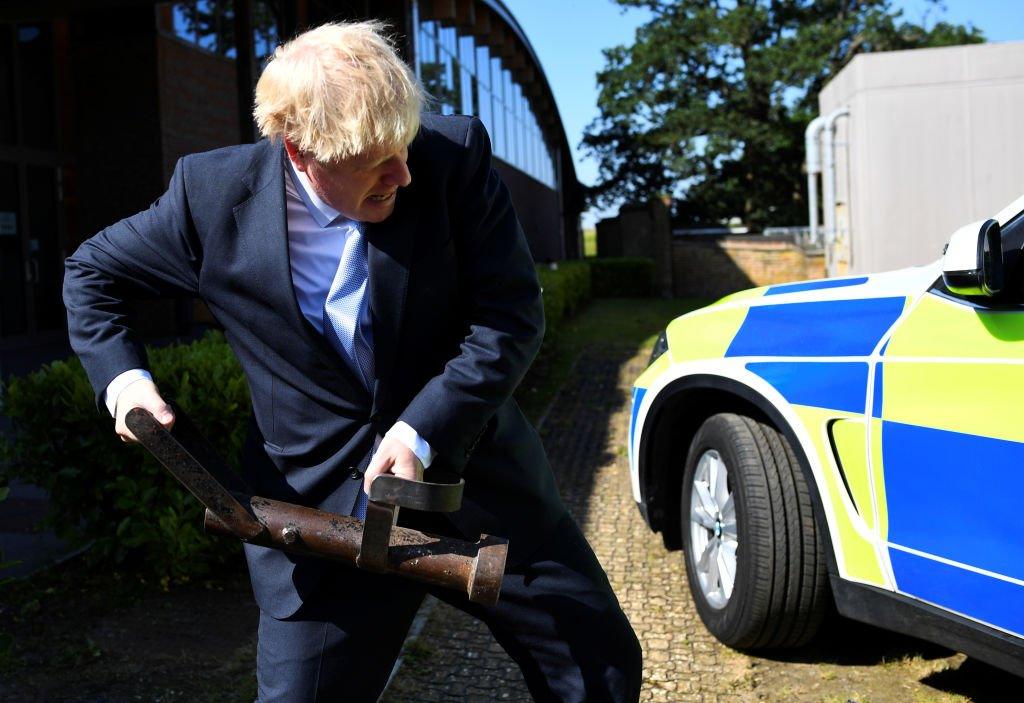
Campaigns are all about photo opportunities, but Mr Hunt had earlier enjoyed an unintentional moment in the spotlight.
The helicopter to pick him up from the hustings in Carlisle interrupted Boris Johnson as he answered a question about tackling climate change.
Mr Johnson joked it was a "national scandal" that the pair hadn't shared a ride, having initially thought the chopper was his and pledging to "plant a shrubbery" to offset it.
And Mr Hunt wasn't alone in finding that the cameras can pick up more than planned.
On Sunday, Sky journalist Sophy Ridge asked Mr Johnson about his socks after he appeared to wear the same pair several days in a row.
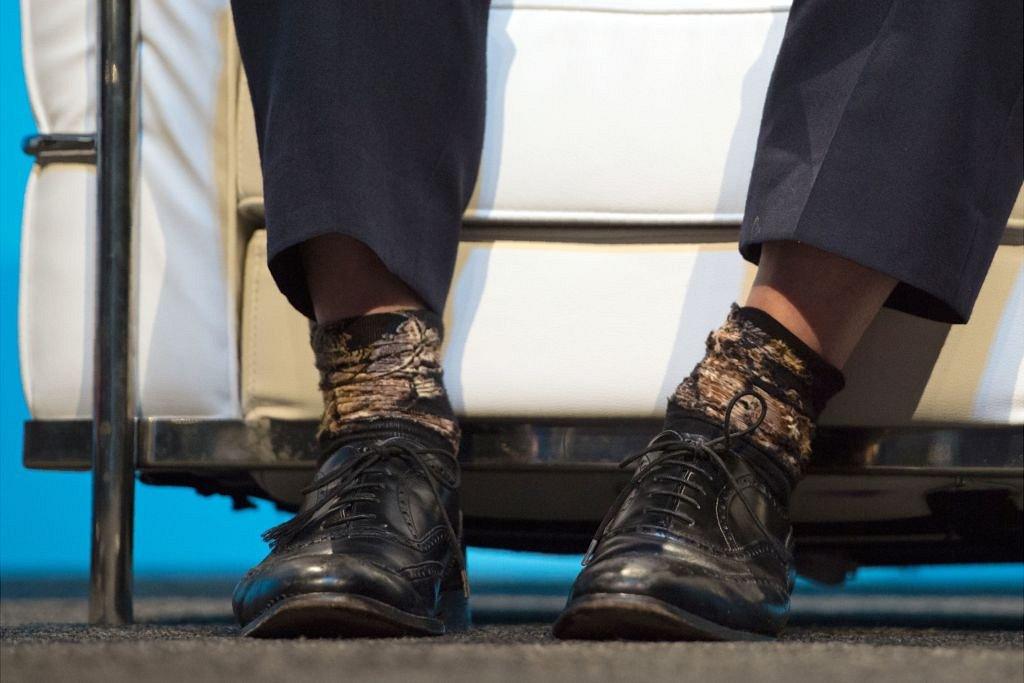
They featured an image of Assyrian king Ashurbanipal who was "ruthless in dealing with enemies" and described himself as "king of the world", according to the British Museum.
His team told newspapers that Mr Johnson owned several pairs of the socks.